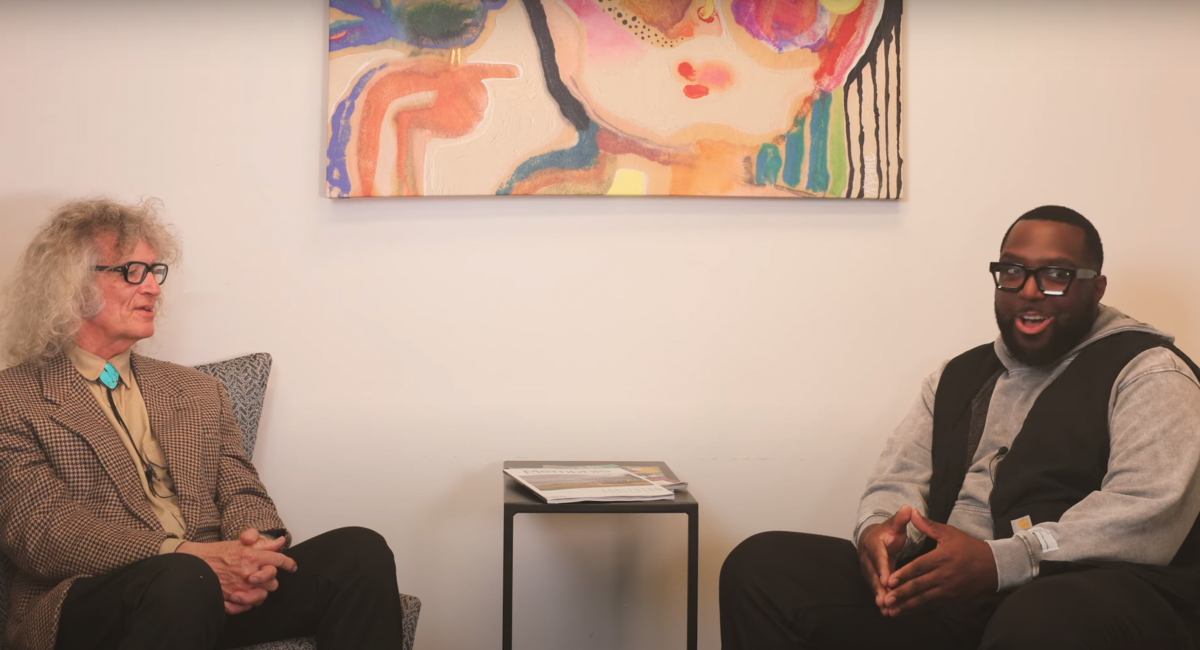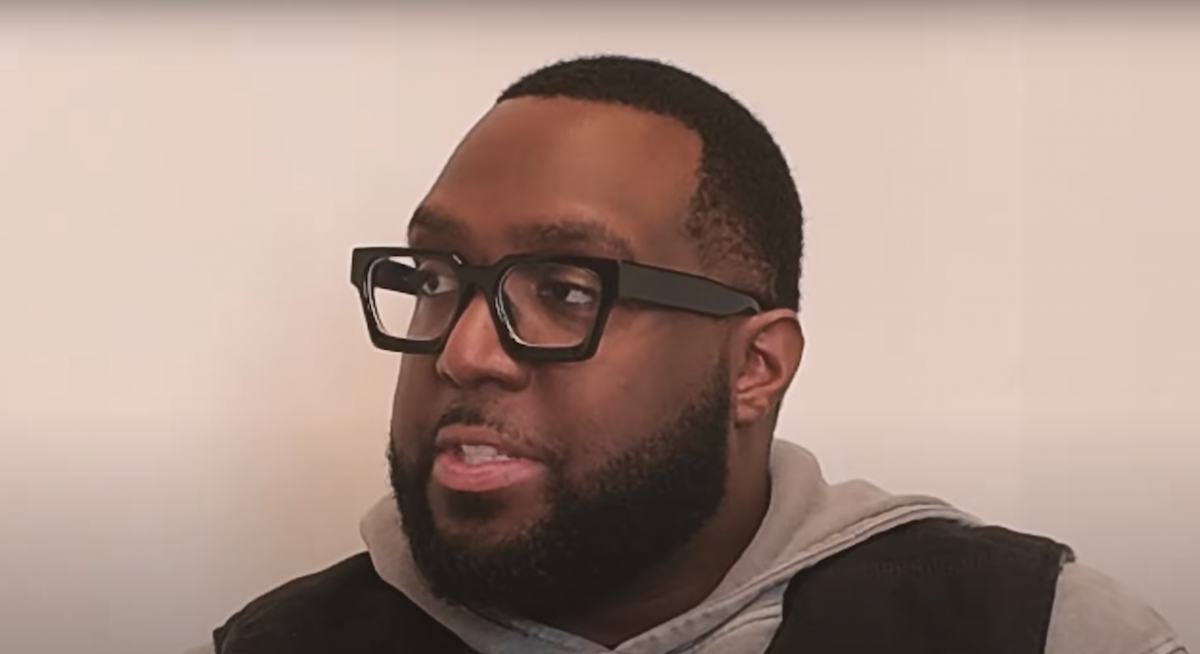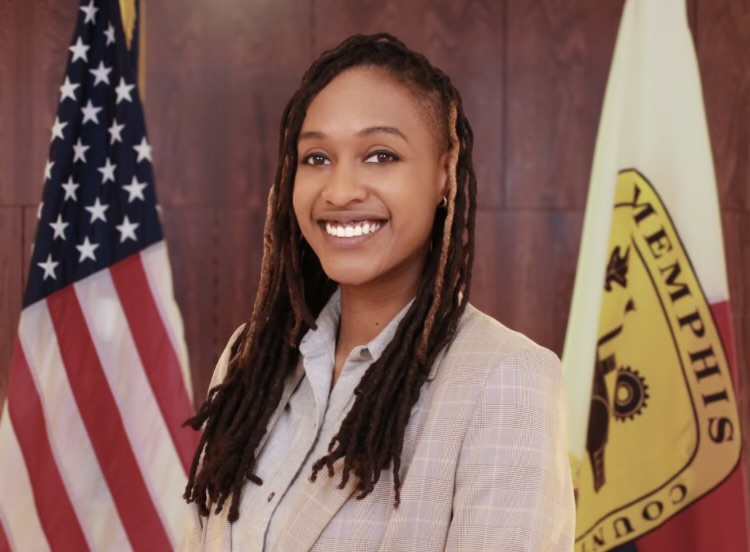Renee Parker Sekander is the city of Memphis’ new LGBTQ liaison.
Those duties are additional to her role as executive assistant to Memphis Mayor Paul Young. Former Memphis Mayor Jim Strickland created the LGTBQ liaison position, a role filled in the past by Dabney Ring and Maria Fuhrmann.
Sekander is a native Memphian, a University of Tennessee graduate and has worked as an advocate in Atlanta, Denver, Los Angeles, and more. But they weren’t home, she said. Also, she said she’s motivated to create a Memphis that she wants to live and raise a family in.
“I’m a person who is gay and wants to have a family,” Sekander said. “I also have family that’s gay. I have family that’s trans, I have friends who are trans. I have folks who have left Memphis because they say the state is too harsh, that it’s too hard to be trans, it’s too hard to be gay in this community. So they go to Chicago, or Los Angeles, or Boston.”
Sekander went on to say when people leave the city, it’s hard for Memphis to continue to grow and reach its full potential as it’s losing important talent and voices.
Not only is Sekander dedicated to making sure the city is welcoming and inclusive for the LGBTQ community, she also plans on doing outreach work to “bring people back.” She sees this as an opportunity to “rebrand” and “re-educate” the city.
The Flyer spoke with Sekander about her intentions in her role, how her identity impacts her work and more. — Kailynn Johnson
Memphis Flyer: Tell us a little bit about yourself.
Renee Parker Sekander: My name is Renee Parker Sekander, born and raised in Memphis, Tennessee. I have lived in several different cities over the last six years, but my wife and I made the decision to move back home to Memphis and make this our permanent home again.
I live in the Midtown area with my fabulous but reactive dog, Fox Cleopatra Parker, and we just have an incredible life here in Memphis. A large part of the reason that I am who I am is because this city built me, and I’m excited to just pour back into it with every bit of me.
That’s the “too long; didn’t read” summary of who I am.
Could you talk more about how your identity and background play a role in the work that you’re currently doing?
I’ll say I’ve been doing this work unofficially for a little while, just as a person who’s very passionate about inclusivity, equality, [and] making sure Memphis is really seen and branded as an inclusive and welcoming city so that we don’t lose out on talent, culture, and spirit to other cities because some people perceive us to not be an equal city, an inclusive city.
My goal is to make sure that people feel comfortable living here authentically being who they are and making sure we are all free and able to contribute to building the city the way it should be built.
I think for me it’s been very important that I continue the work that has been done over the past few years. I’m not the first LGBTQ liaison, there were two prior to me, Dabney Ring and Maria Fuhrmann… I’m excited to continue the work but also expand the work, too.
When I started my work in government, I told Mayor Young I was ready to push his vision forward. For him, his vision really prioritizes making sure that every member of our community feels valued, feels seen. So, the charge that he’s given me is to continue making strides and taking steps to making sure our city is represented as an inclusive and welcoming city.
I’m really excited to think through some creative ways but also build on the work that’s already been done and is being done by different community members across the city of Memphis and also working with them to be innovative, figuring out new ways we can keep our culture here, keep our people here, so that our city can be as safe and inclusive as possible.
How would you describe your role and responsibilities?
In quite a few different ways. I think one of the biggest roles is going to be making sure that people outside of city government understand and have closer relationships with those in it, making sure that we’re constantly present whether that be at events, at meetings, brainstorming sessions, making sure that I’m expanding the table, making sure that more people can sit at it, and more voices can be heard as decisions are being made on how to make our city more inclusive.
It’s also about making innovative ways to grow our MEI (Municipal Equality Index) score which is currently 54 out of 100, according to the Human Rights Campaign. [This is] our equality index, like how inclusive, how safe is our city? I’m thinking of ways to grow that score. So, it’s going to be a lot of ensuring our city resources are accessible to the people who use them and need them, and making sure we really rebrand the city as a space that is safe and welcoming for all.
What are some of the things in Memphis that may hinder people from having an authentic experience and how does having someone like yourself in the mayor’s office help make that experience a reality?
I think being able to come from the perspective of a woman wanting to raise a family here. What do I want my Memphis to look like for my family, for my children? Making sure that we continue to protect our community.
We see a lot of times in national news and statewide news a lot of attacks against the LGBTQ community, things that are putting obstacles in the way of folks from being able to access housing, job equity, protections against discrimination. These are things that a lot of people look at our state, and look at our country and we have to be able to say [that] Memphis is not a part of tearing people down based on who they identify as. We are actually welcoming and we embrace it and overall we want to make sure people understand they can come home to Memphis if they are trans, if they are queer. They can make an impact here.
It’s going to take all of us to fix a lot of the problems that we see in our city and we have to make sure that there are no barriers or limits to being able to welcome the folks who want to make an impact here in Memphis to be able to do that. It’s going to take a lot of innovative ideas, a lot of ideas people have been fighting for and working on for years and years, but overall it’s going to take a collective group of voices.
What I’m excited to do in my role is creating that table, making sure that we’re constantly hearing those voices, and that everyone has an active part in the progress we’re trying to make here. It’s going to be some ‘teamwork makes the dreamwork’ for the next few years.
How do you continue the work that’s been done but also expanding so more people can have a seat at the table?
I think the first and most important thing is listening. It means meeting with the folks that have been doing the work and consistently meeting, too, and becoming intertwined in that work.
One of the things I hate the most is the duplication of efforts. I want to make sure that we know what work is already being done, what’s working, what’s helpful, and what gaps are there. Are there ways that the city can be doing more to make sure that people feel seen and heard in hard moments and in strong moments within our community?
Having a presence, too. I’m very excited because our mayor has taken the charge of being a present mayor, an active mayor of being in the community. That’s something that he’s going to continue to do and so making sure that there’s always a presence with our city officials and our city government in those spaces where it’s going to be impactful, where people’s presence might not have been there in the past. We want to make sure we’re filling in those spaces, and that we’re there and that we’re listening.
My first couple of months as the liaison will be learning more about what organizations have been doing this work, meeting with folks and activists who have been doing this work, and making sure they’re at my table as we continue to make these charges and make these changes.
You’ve been in advocacy work for a minute. What keeps you motivated?
I think it’s a combination of “little me” and “big me.” “Little me” was a little girl growing up closeted and gay here in Memphis — scared to come out, scared to be who I am. In that, I was also scared to ever use my voice. I felt like kind of [a] shell of myself sometimes. As I became more comfortable with who I am, who I love, I became more confident in using my voice against the things that are wrong, that are unjust.
For me, I stay motivated by knowing there’s still more work to do. I want to make sure a little Black girl growing up here in Memphis who’s closeted and queer feels more comfortable, more safe, coming out sooner because we need their voice, we need their energy, we need who they are. I think it’s really important we send that message to little girls and little boys.
It’s also about “big me.” I’m not a mother yet, but I want to be a mother, and I always want to be able to look back and say [that] I did good work that’s going to benefit my children’s lives. It’s always about making “big me” proud, too. It’s about doing the work that’s going to be the most impactful, and doing it in my hometown, that really drives me.












